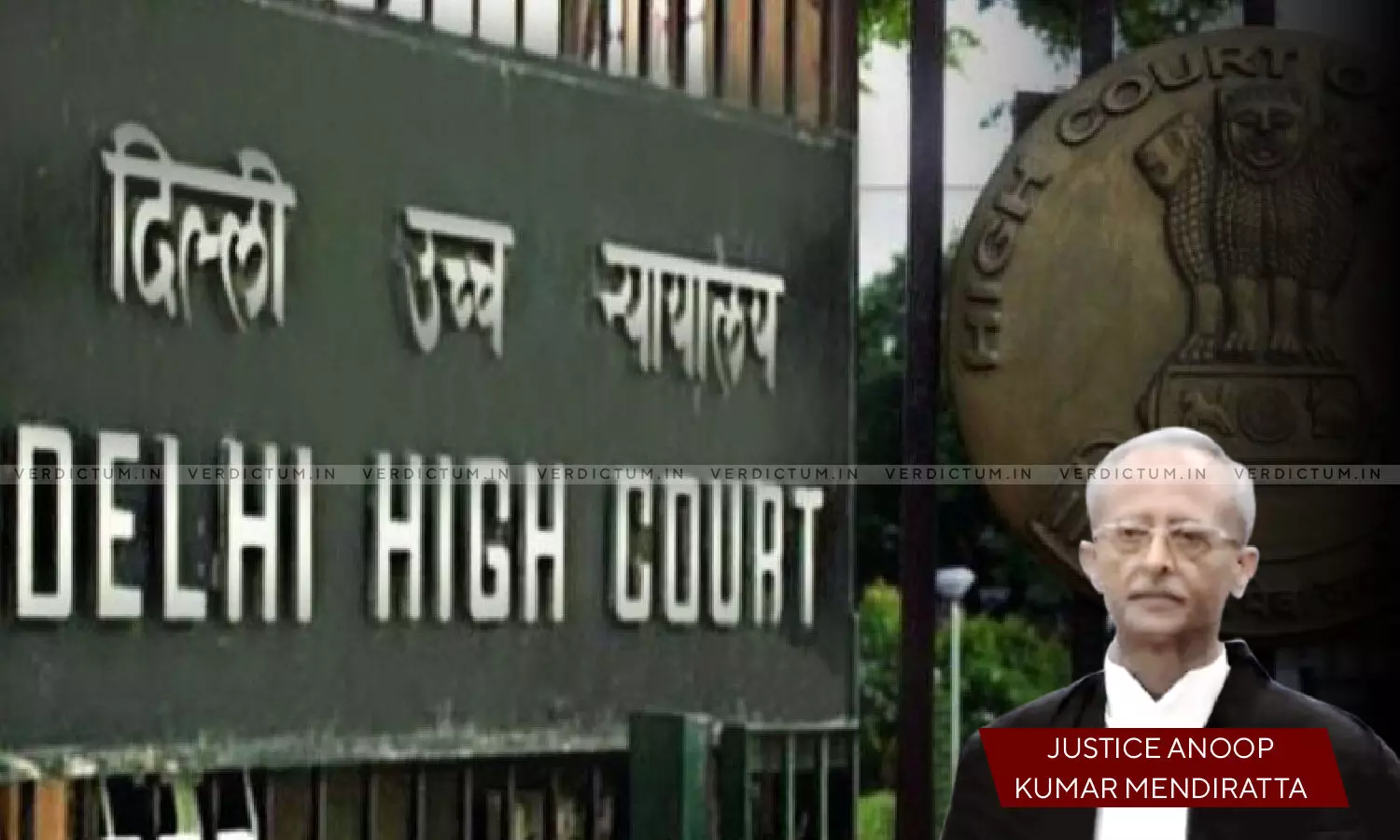
Presumption U/S 29 POCSO Act Operates Only When Prosecution Proves Foundational Facts Against Accused Beyond Reasonable Doubt: Delhi HC
 |
|The Delhi High Court observed that presumption under Section 29 of the Prevention of Children From Sexual Offences Act, 2012 would operate only when the prosecution proves the foundational facts in the context of the accused beyond a reasonable doubt.
The Court was hearing an appeal preferred by the appellant/convict under Section 374(2) of the Code of Criminal Procedure, 1973 challenging the judgment of the lower Court which convicted him under Sections 376, 354, 506 and 509 of IPC and Section 8 and Section 10 of POCSO Act.
The bench of Justice Anoop Kumar Mendiratta observed, “Section 29 of the POCSO Act provides that Court shall presume that the accused has committed the offence for which he is charged with until contrary is proved. However, the presumption would operate only when the prosecution proves the foundational facts in the context of allegation against the accused beyond reasonable doubt. After the prosecution establishes the foundational facts, the presumption raised against the accused can be rebutted by discrediting the prosecution witnesses through cross-examination and demonstrating the gaps in prosecution version or improbability of the incident or lead defence evidence in order to rebut the presumption by way of preponderance of probability.”
Brief Facts-
There was a matrimonial dispute between ‘M’ (chachi of victim) and ‘O’ (chacha of victim), due to which appellant (brother of ‘M’) along with his father and other persons had visited the house of his sister for resolution of matrimonial disputes. A call was made to the police after the quarrel. After the visit of police, ‘M’ along with her child, appellant and other persons proceeded to her parental home. It was alleged by the victim, who is 12 years old, that the brother of her aunt kissed her and touched her inappropriately.
The Court stated, “The principle is well settled that the Court can base conviction on the testimony of a child victim if the same is credible and truthful. Corroboration is not a must on record but is a rule of prudence. The precaution which the Court should bear in mind while relying upon the testimony of a child victim is that the witness must be reliable, consistent and there is no likelihood of being tutored or under an influence. The version put forth has to be unassailable, trustworthy and of sterling quality, capable of holding appellant guilty on the basis of solitary evidence.”
The Court noted that the victim had given multiple versions related to the incident. Hence, the Court stated that the chain of events reflected that the testimony of the witness/victim was unreliable as she was changing her stand.
The Court stated that if any such incident had occurred on the day on which the quarrel took place as alleged by the victim in her statement under Section 164 Cr.P.C., there was no reason that the same would not have been conveyed to police on a visit to the premises on the same day. According to the Court, the edifice of the prosecution version, as such, is weak and full of gaps.
The Court stated that it could not be ignored that the entire incident is alleged to have happened only within a short period while ‘M’ (chachi of victim) had gone to bathroom and was followed by an altercation due to matrimonial disputes after which the police were called but the incident was not revealed by the victim.
The Court noted that the quarrel at the time of the incident and matrimonial differences provide a strong motive for falsely implicating the appellant subsequently.
As per the Court, in the present case, the evidence and statements during investigation, reflect different dates of alleged communication of the incident, which throws a doubt on the prosecution version as in the absence of foundational fact not being proved beyond reasonable doubt, the reliance placed upon presumption under Section 29 & 30 of POCSO Act by learned Trial Court to base conviction, appeared to be misplaced.
According to the Court, even if the foundational facts are considered to be proved, to make the presumption under Section 29 of the POCSO Act, the same stands discredited by way of discrepancies brought in cross-examination of the victim, her grandmother and witnesses examined in defence.
The presumption of guilt under Sections 29 & 30 of the POCSO Act taken by the Trial Court could not be an edifice to convict the appellant since the testimony of the victim is unreliable and there are serious flaws and gaps in the prosecution case.
“As a wrongful acquittal shakes the confidence of people, a wrongful conviction is far worse. A child abuser in the eventuality of false implication even continues to suffer a blot of social stigma which is much more painful than the rigours of a trial and imprisonment.”Court stated.
Consequently, the Court allowed the appeal and set aside the conviction and order of sentence.
Cause Title: Veerapal @Titu v. State (Neutral Citation: 2024:DHC:2976)
Appearance:
Appellant: Adv. Nagendra Kasana, Adv. Aditya Sharma, Adv. Palak, Adv. Rajesh R. Rathod
Respondent: APP Minakshi Dahiya, Adv. Bir Singh, Adv. Ravi Nirvan
Click here to read/download Judgment